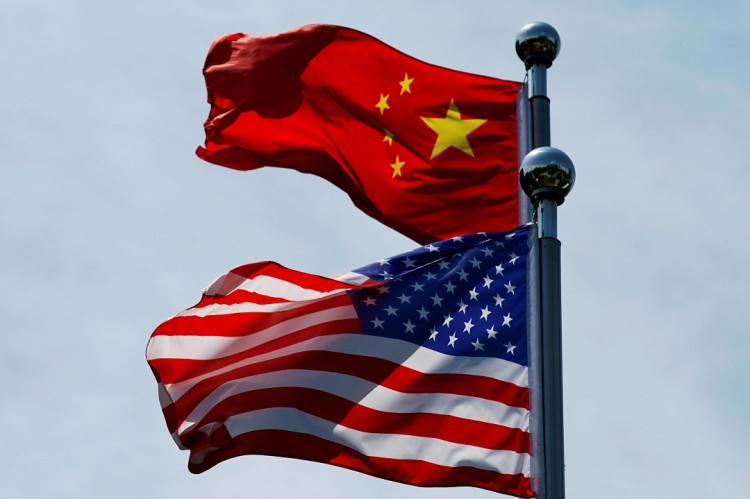President Donald Trump is expected to tone down his harsh criticism of China's role in the COVID-19 pandemic to protect what he perceives is the only remaining economic achievement of his presidency -- his now mostly forgotten multi-billion dollar phase one-China trade deal forged only last January.
Before the COVID-19 pandemic swept onto U.S. shores in January, Trump proudly boasted the surging stock market and record low unemployment figures were his greatest achievements. The stock market plunged into bear territory in March while the total number of unemployed Americans skyrocketed by 26.5 million over the past five weeks.
This unprecedented unemployment surge wiped-out all the job gains achieved since the Great Recession of 2008. Now, Trump has only his dubious trade war "victory" against China to cling to. With the November 3 elections only six months away, Trump might be expected to make the most of this remaining "accomplishment" on the campaign trail but will be unable to do so.
Trump launched his trade war against China on Jan. 22, 2018 when he imposed tariffs on solar panels and washing machines imported from China. He followed this up on March 1 with steel and aluminum tariffs on imports from all countries, including China. And on March 22, Trump asked the Office of the United States Trade Representative (USTR) to investigate applying tariffs on $50 billion to $60 billion worth of Chinese goods.
Trump said the proposed tariffs were a response to the unfair trade practices of China over the years, including theft of U.S. intellectual property. As a consequence, USTR listed more than 1,300 categories of Chinese imports as tariff targets.
On April 2, China first retaliated by imposing tariffs on 128 products imported from the U.S., including soybeans (25% tariffs) aluminum, airplanes, cars, and pork.
Tit-for-tat tariffs were imposed by both countries until Oct. 11, 2019 when Trump announced both countries had reached a tentative agreement for the "first phase" of a trade deal. Trump claimed China agreed to buy $50 billion in American farm products, and to accept more American financial services in their market, among others.
For its part, the U.S. agreed to suspend new tariffs scheduled for October 15. Phase one of the "Economic and Trade Agreement between the United States of America and the People's Republic of China" was signed at the White House on Jan. 15, 2020. The deal took effect on February 14.
China granted tariff exemptions on 696 US goods on February 17 and on March 5, USTR granted tariff exemptions on medical equipment imported from China as the COVID-19 pandemic in the U.S. began its ferocious spread.
U.S. foreign policy experts now say Trump's phase one deal stands to become a huge economic casualty of COVID-19. The United States-China Economic and Security Review Commission (the US-China Commission) said stalled trade and almost non-existent consumer demand in China due to the pandemic "raises the possibility that implementation (of phase one) could be disrupted." This outcome will hinder Trump's efforts to end the two-year trade war with Beijing he began in 2018.
China is expected to invoke a clause in the deal allowing for fresh trade consultations between both countries "in the event that a natural disaster or other unforeseeable event" postpones the ability of either party to verify that the clauses are being met, according to a report by the US-China Commission.
The U.S. and China remain coupled economically despite optimistic talk of Trump decoupling the U.S. from China at the height of the trade war.
"Because China is a global manufacturing hub, domestic supply chain disruptions sparked by COVID-19 have triggered shocks across the global economy and brought into sharp relief the risk of reliance on China as a source of intermediate and finished goods" said the report.
The threat China might postpone phase one as it demands fresh trade negotiations carry with it the risk the American public will perceive Trump has failed in his trade war against China.
The simple fact of Trump's concerns about China backing out of phase one are factoring into his response to the pandemic emphasizes how much Trump "has managed to box himself in on China."
"After slapping everyone with tariffs for three years and forcing countries like China into trade deals they didn't want, Trump has created a situation where now he needs to appease China," said Doug Heye, a veteran Republican Party strategist, "or else he risks Beijing kicking the stool out from under one of his core issues."
"By tying his own political fortunes so tightly to this one deal, Trump has managed to box himself in China. And the next time he needs to hold China accountable for what they've done like right now, he won't be able to."






